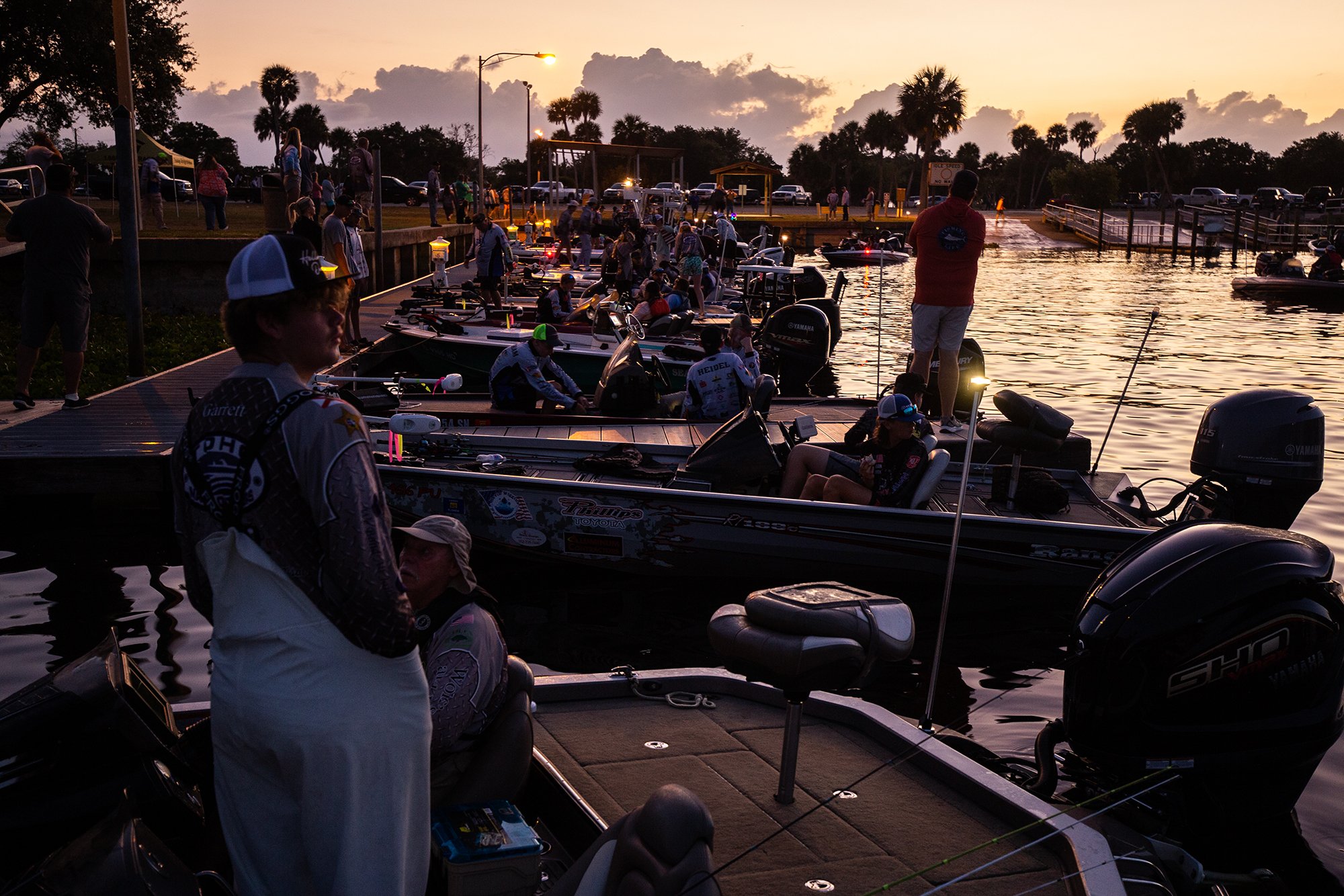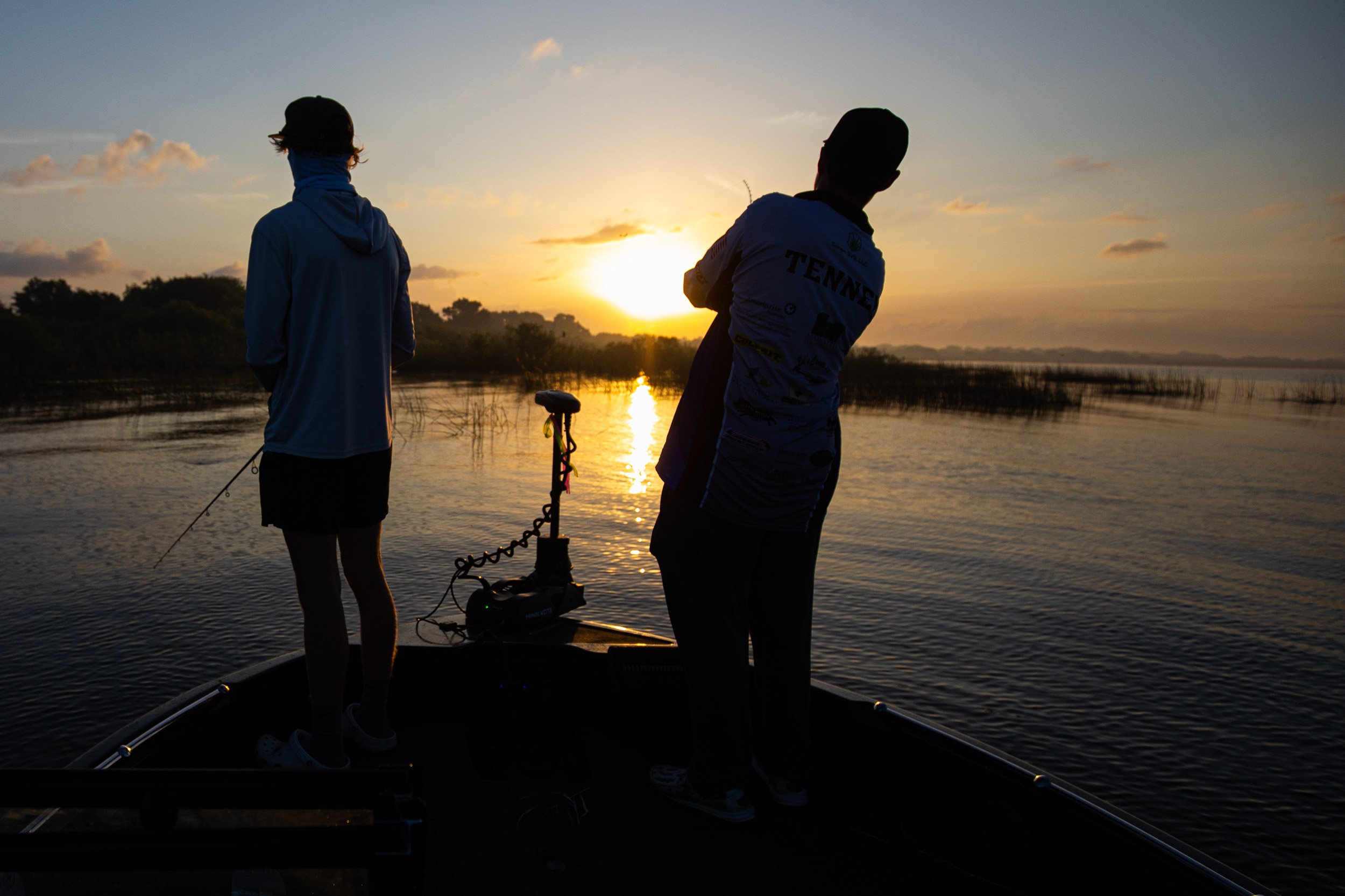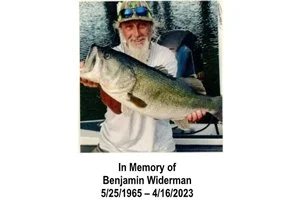
Competitive Bass Fishing for Central Florida Youth
Sportsmanship, Service & Fishing
A 501(c)(3) nonprofit organization, the Teen Sportfishing Association works to teach sportsmanship and basic fishing techniques, nurture a love of fishing and the outdoors, and instill principles of community service through an entry-level competitive bass fishing program for 7th to 12th graders.
TSA serves five Central Florida counties — Orange, Seminole, Osceola, Lake, and Volusia — each of which runs its own program. For the 2025-26 season, Seminole and Osceola counties are combined into a single program.
The program coincides with the school year, running from August through May, and consists of two meetings per month and one tournament per month. Teens accumulate points through tournament finishes and meeting attendance and can qualify for a state championship tournament. The season ends with a banquet for anglers and their families.
A boat is not required. Teens may fish with a family member or friend who owns a boat, but volunteer captains and boats are provided for those who do not have access to a boat.
Participation is affordable. There is an annual registration fee of $100 or $125 (depending on county) plus an entry fee for each tournament. Tournament fees also vary by county but are less $100.
Teens are required to maintain a minimum GPA and participate in community service during the season.
Our Sponsors
Without our generous sponsors, TSA wouldn’t be able to operate. We are deeply appreciative and ask that anglers and their families and friends give special consideration to these companies. Sponsorships help fund not only regular operations, but also scholarships for graduating seniors, fee assistance for lower income anglers, and our end-of-season banquet for anglers and their families.

Tournament & Points System Basics
Each county program runs its own tournaments and points. Always check with your local program and refer to TSA Bylaws for definitive information. The following is a general overview.
TSA tournaments are:
Held locally in the Central Florida region. Locations are generally no more than a one-hour drive from anglers’ homes.
Held on Sundays except in rare circumstances. Fishing hours are normally from safe light to 1 p.m.
County-based. Anglers fish against others in their home county program.
Individual. Anglers fish two to a boat, but compete individually.
Based on a 5-fish bag. The angler with the greatest combined weight wins.
Points are earned from tournament finishes (300 for first, 295 for second, and so on), biggest fish of a tournament (3 points), and meeting attendance (50 points each meeting).
At the end of the “regular season,” the top 30% of anglers by points for each county qualify for the two-day state tournament held in May.
TSA FAQs
-
Check the Facebook page or website of your local country program and contact the organizers or attend an information/registration meeting at the beginning of the season in August.
-
TSA is for anglers from 7th grade through 12th grade. Anglers in 6th grade may join if they can provide their own boat for tournaments.
-
Meetings are typically held twice a month. Check with your local county program for dates, times and location. Some meetings may be online.
-
Anglers who miss three consecutive meetings unexcused are no longer eligible to participate. Meetings are worth 50 points each (the same as the difference between 1st place and 10th place in a tournament) so anglers must attend regularly to have a shot at qualifying for the state championship. Each angler gets one “free pass” to miss a meeting without losing points. Anglers may also make up missed meetings by attending another county program's meeting the same week.
-
Anglers pay an annual fee for the season and then tournament entry fees. Costs vary somewhat by county, but the annual is normally $100 - $125 and entry fees are $50 to $60 per tournament (less if you provide your own boat). Anglers/families are also responsible for their own fishing tackle and travel to tournament locations.
-
TSA doesn’t emphasize the use of expensive or specialized equipment. Anglers can be very competitive with two or three basic spinning or baitcasting outfits and a small box of tried-and-true plastic lures and hooks.
-
No. Many anglers do fish aboard boats owned by family members or friends, but volunteer captains and boats are available for those without access to a boat. Even if anglers do have a friend or family member with a boat, they are encouraged to fish with other captains as well in order to learn more.
-
All anglers are welcome, from first-timers to experts. Most do have at least some experience when they join, but the role of TSA is to provide an environment where anglers can improve their skills. Anglers who start in TSA often progress to more competitive leagues and even college and professional fishing.
-
Tournaments are typically held on Sundays, once per month from September through March/April. All “regular season” tournaments are within the five-county Central Florida area. Check with your local county program for dates, times and locations.
-
If an angler has a family member or friend with a boat, they can be guaranteed to fish with that person. Otherwise, we try to put anglers with different captains so they can learn different strategies.
-
We try to shuffle anglers around as well so they get to fish with different people. Anglers who have a family member or friend with a boat can normally choose the second angler for the boat.
-
There are no monetary prizes in TSA. The anglers with the top five combined weights win in each tournaments are awarded trophies. The angler with the single biggest bass also wins a trophy.
-
The state tournament is normally in early May, shortly before the end of the school year. The location varies but may be outside the five-county region. The 2023-24 state championship was at Lake Okeechobee.
-
Typically, the top 30% of anglers by points in each county program at the end of the “regular season” qualify for the two-day state championship tournament.
-
Anglers must maintain a GPA of 2.0 or higher for the current grading period to fish in tournaments. Regardless of overall GPA, any angler with an F or an I in a core class is ineligible to fish.
-
Anglers must complete at least two community service projects approved by TSA per season to qualify for state championships. For one of their projects, many anglers choose to assist with the Paralyzed Veterans of America Bass Tournament held annually in Central Florida.
-
Yes! Please see our captains’ page for more information.

Angler Requirements and Expectations
Expectations and requirements for participation are detailed in the TSA Bylaws. The following is a brief summary. In order to participate in TSA and fish in TSA tournaments, teens must:
Maintain a minimum GPA of 2.0 for the current grading period and not have an ‘F’ or an ‘I’ in any core class.
Complete two TSA-approved community service projects per season.
Have a valid fishing license if 16 or older.
Complete the BoatU.S. Foundation’s free online Boating Safety Course and pass the test.
Not use tobacco of any kind.
Maintain a high level of discipline, integrity and moral standards at all time and not engage in any act detrimental to TSA or its participants.
For tournaments, anglers must:
Complete a registration form and pay the registration fee by the deadline.
Furnish their own correctly fitted, non-inflatable life jacket.
Wear their lifejacket any time this gas motor is in operation.
Captains Wanted!
Volunteer captains are the lifeblood of TSA. Not only do you get to teach and mentor local youth in the sport you love, but we’ll also throw in gas money and lunch! Here’s what you need to know:
The primary requirements for boats are that they must be safe for three people and have sufficient livewell capacity to keep 10 bass alive. Bass boats are great, but we have captains with pontoons, bay boats, flats boats and larger jon boats.
Boats must meet all USCG safety requirements, including lighting, fire extinguishers, and emergency signals.
Teens provide their own lifejackets.
Captains fish with two teens at a time.
Captains can instruct, advise, and net fish but may not touch a teen’s rod in the process of catching a fish.
Captains can fish for fun from the back of the boat during tournaments.
Being a volunteer captain is incredibly rewarding and fun!





































